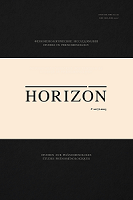PHÉNOMÉNOLOGIE OU STRUCTURALISME. FOUCAULT, DERRIDA ET LA SYNTHÈSE PASSIVE
PHENOMENOLOGY OR STRUCTURALISM. FOUCAULT, DERRIDA AND THE PASSIVE SYNTHESIS
Author(s): Vittorio PeregoSubject(s): Structuralism and Post-Structuralism, Phenomenology
Published by: Издательство Санкт-Петербургского государственного университета
Keywords: Foucault; Derrida; Merleau-Ponty; phenomenology; structuralism; passive synthesis; transcendental genesis;
Summary/Abstract: Foucault and Derrida react in two different ways to the new paradigm imposed by structuralism. Foucault uses structuralism to overcome phenomenology, in fact structuralism shows the naivety of phenomenology, in its claim to rely on conscience to constitute meaning. Instead, Derrida on the contrary immediately nurtures a certain distrust of structuralism, especially in its philosophical ambitions and uses the resources of phenomenology to criticize it, showing the metaphysical implications operating in it. We want to show how this opposing position is generated by the specific way in which the two philosophers have responded to the open problems and bequeathed by Husserlian phenomenology. In particular, the theme of “passive genesis,” which was raised in the French debate by Tran-Duc-Thao and Merleau-Ponty, is central. In the first writings it emerges how Foucault has received Merleau-Ponty’s theses and it is precisely to overcome them that he inaugurates an archaeological analysis to try to distance himself from the normalizing anthropological discourse present in the passive synthesis. Derrida reads passive genesis in a radically different way from Merleau-Ponty (and therefore Foucault): the radical nature of Husserl’s phenomenology has opened a space to question the transcendental genesis of philosophical discourse and its possibility of transcending its historical, social and psychological genesis and therefore the sciences that preside over these dimensions. Consequently, showing the naivety of structuralism, Derrida’s research of the sixties is configured as post-structuralist.
Journal: Horizon. Феноменологические исследования
- Issue Year: 12/2023
- Issue No: 1
- Page Range: 30-47
- Page Count: 18
- Language: French

